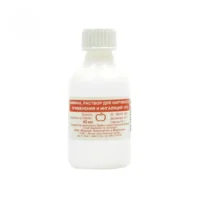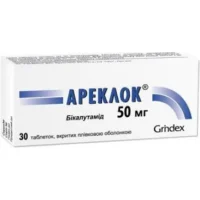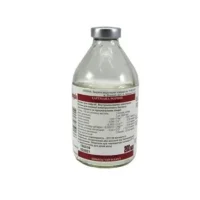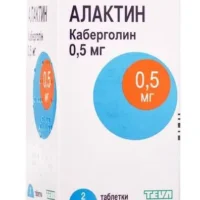Description
Minirin (desmopressin) Tablets 0.1 mg
Ingredients
- Active ingredient: Desmopressin 0.1 mg per tablet.
Dosage
- Dosage: The usual dose for adults is 0.1 to 0.4 mg taken once daily. Dosage may vary based on individual needs and medical condition.
Indications
- Indications: Minirin tablets are indicated for the treatment of central diabetes insipidus, nocturia, and primary nocturnal enuresis.
Contraindications
- Contraindications: Do not use Minirin tablets if you have a known allergy to desmopressin or any of the inactive ingredients in the tablet.
Directions
- Directions: Take Minirin tablets exactly as prescribed by your healthcare provider. Swallow the tablet whole with a full glass of water.
Scientific Evidence
- Minirin (desmopressin) has been extensively studied for its efficacy in managing various conditions such as diabetes insipidus and nocturnal enuresis. Research published in the Journal of Urology has shown that desmopressin is effective in reducing nocturia episodes in adults with nocturnal polyuria.
Pharmacological Effects
- Desmopressin, the active ingredient in Minirin tablets, acts on the kidneys to reduce urine production by increasing water reabsorption. This helps in conditions like diabetes insipidus where the body produces an abnormally large amount of dilute urine.
Clinical Trials and Comparative Effectiveness
- Clinical trials have demonstrated the effectiveness of desmopressin in reducing nocturnal enuresis episodes in children and adults. Compared to other treatments, desmopressin has shown favorable results with a lower risk of side effects.
Overall, Minirin (desmopressin) tablets 0.1 mg offer a well-established treatment option for conditions like diabetes insipidus and primary nocturnal enuresis, supported by scientific evidence and clinical trials.





